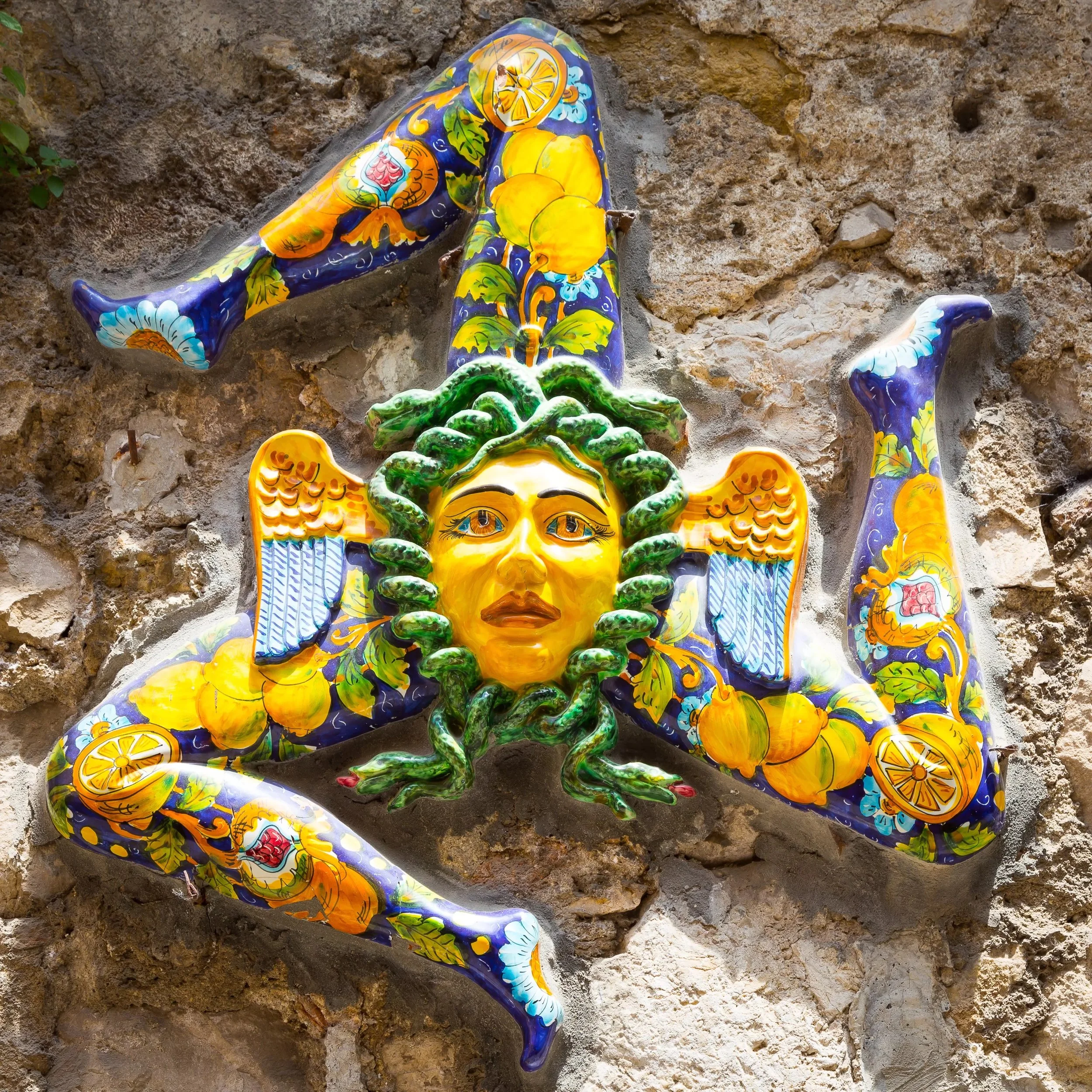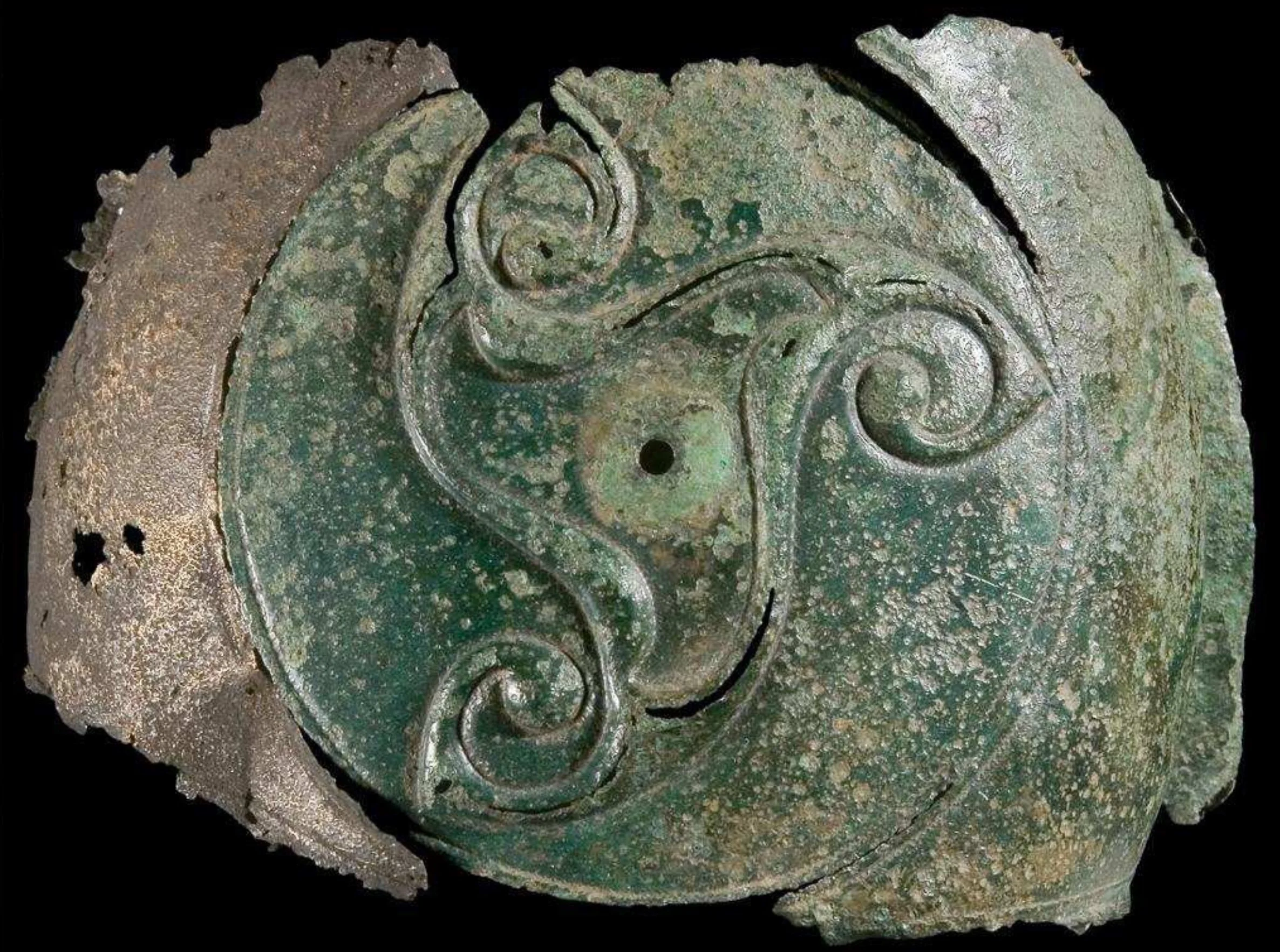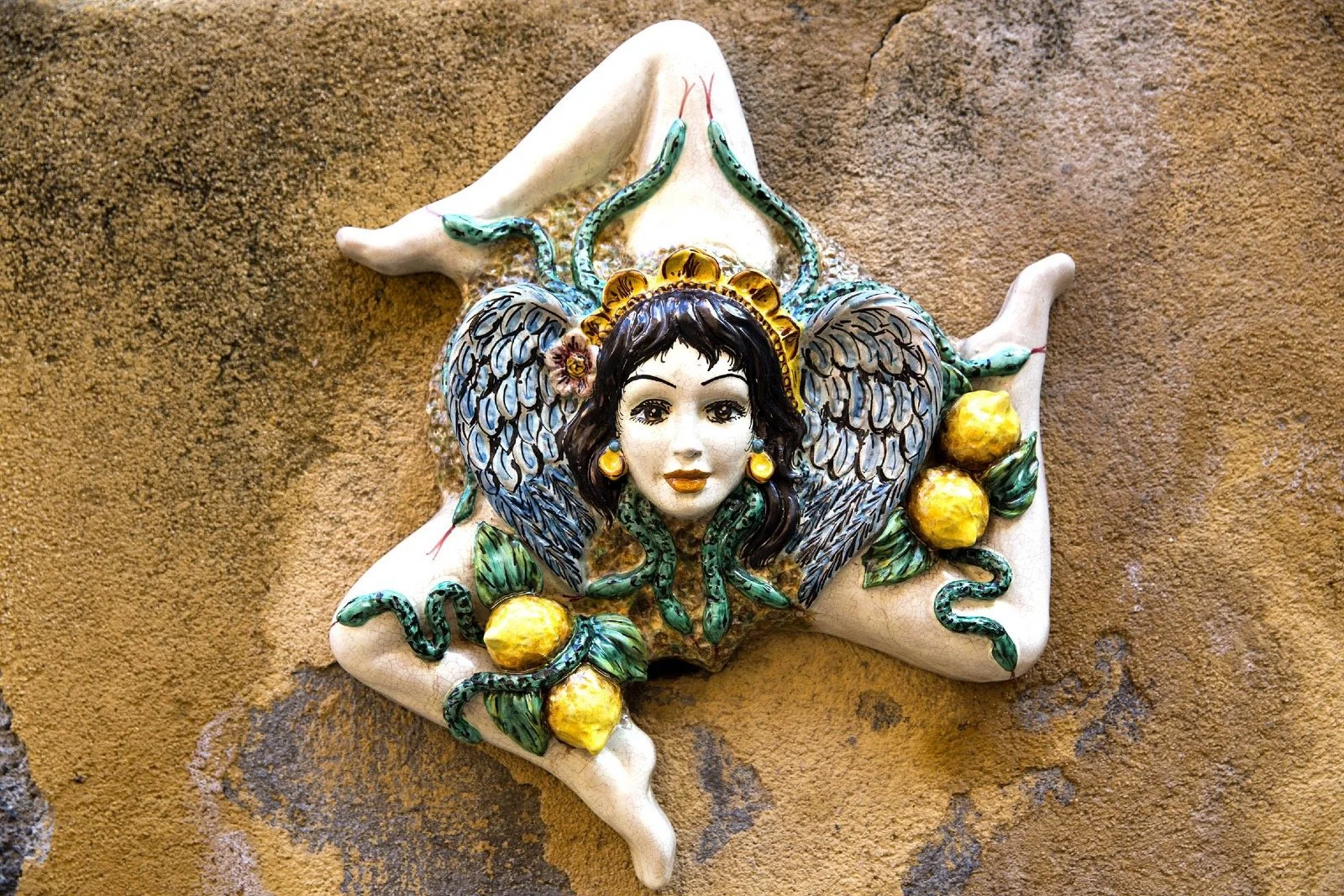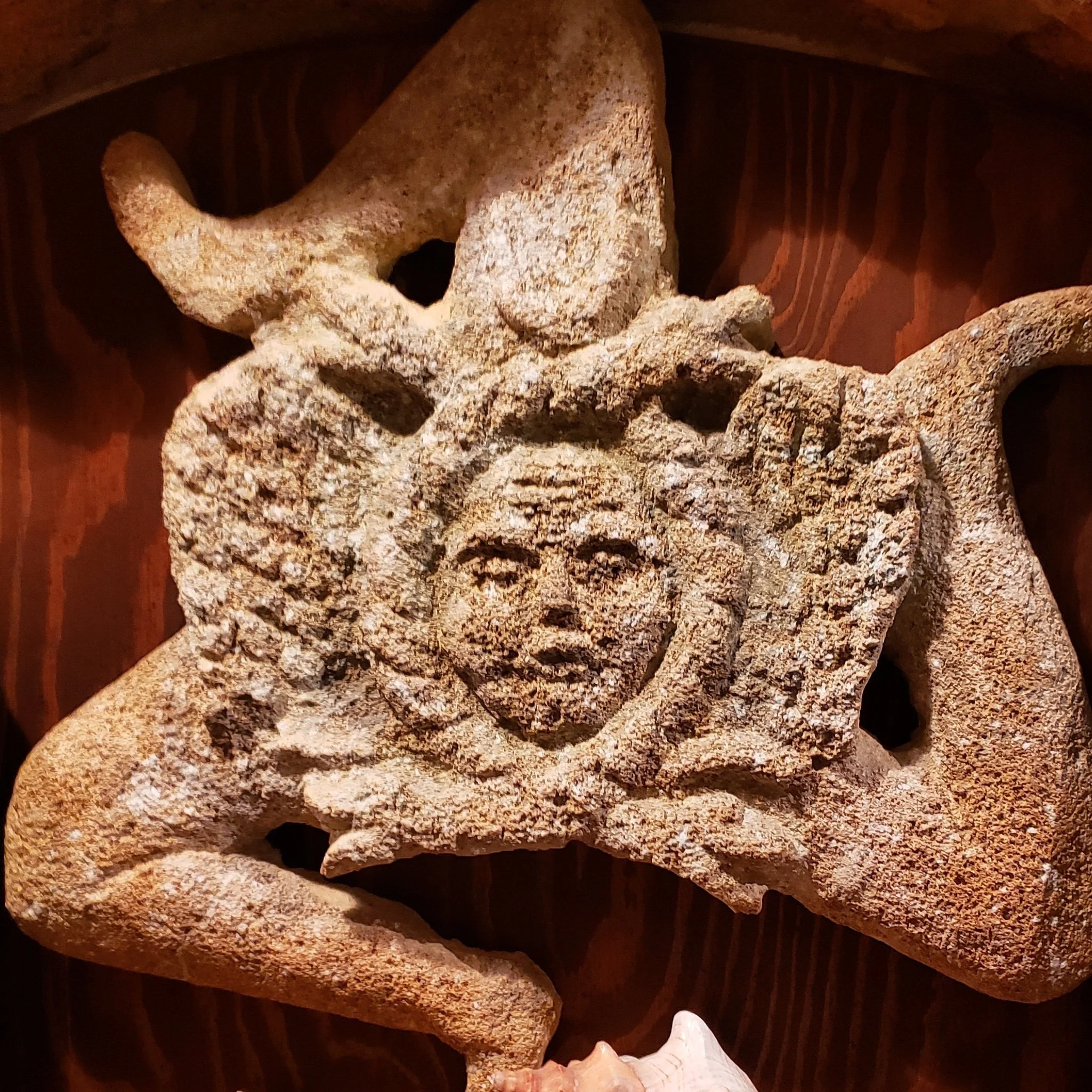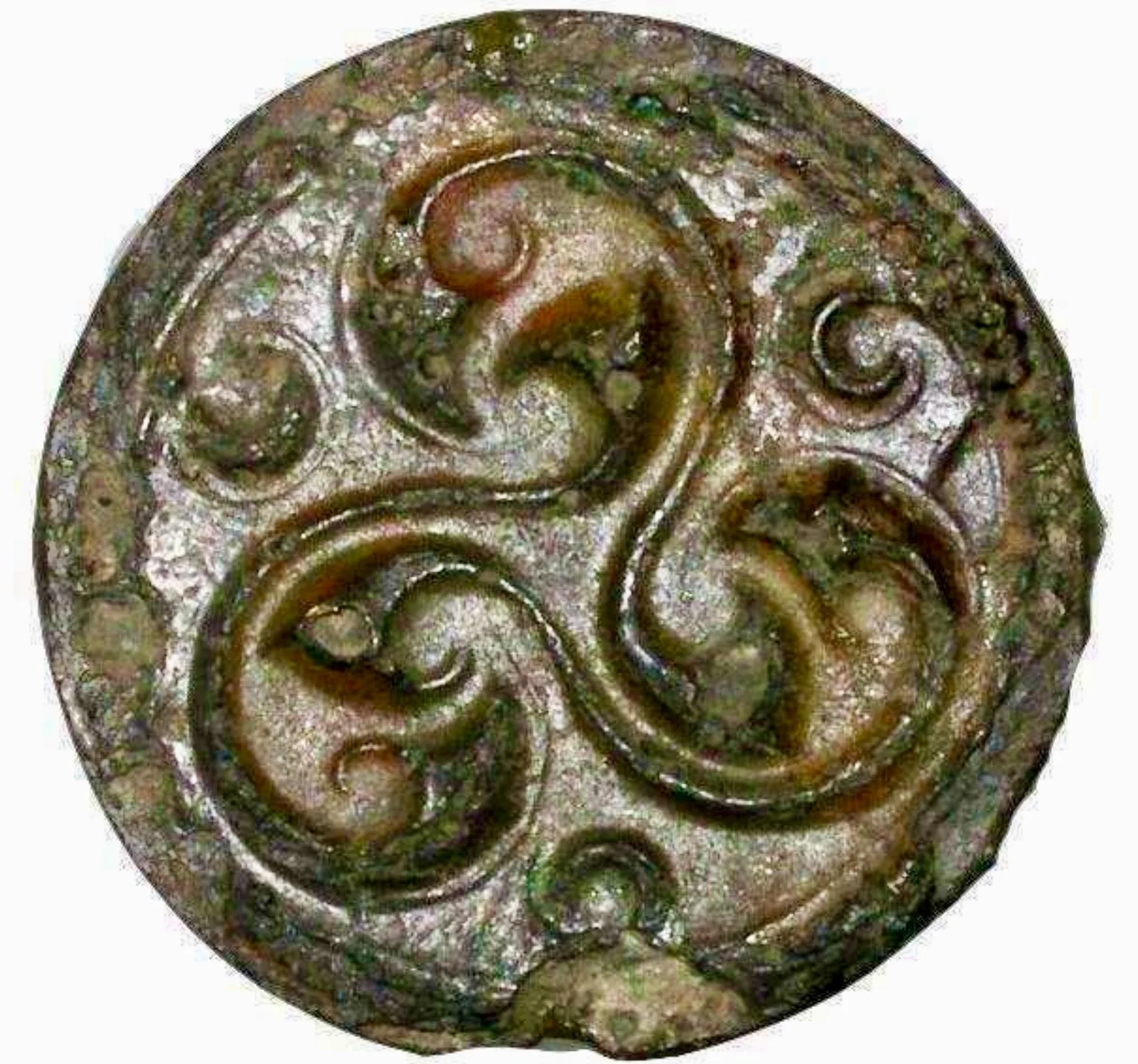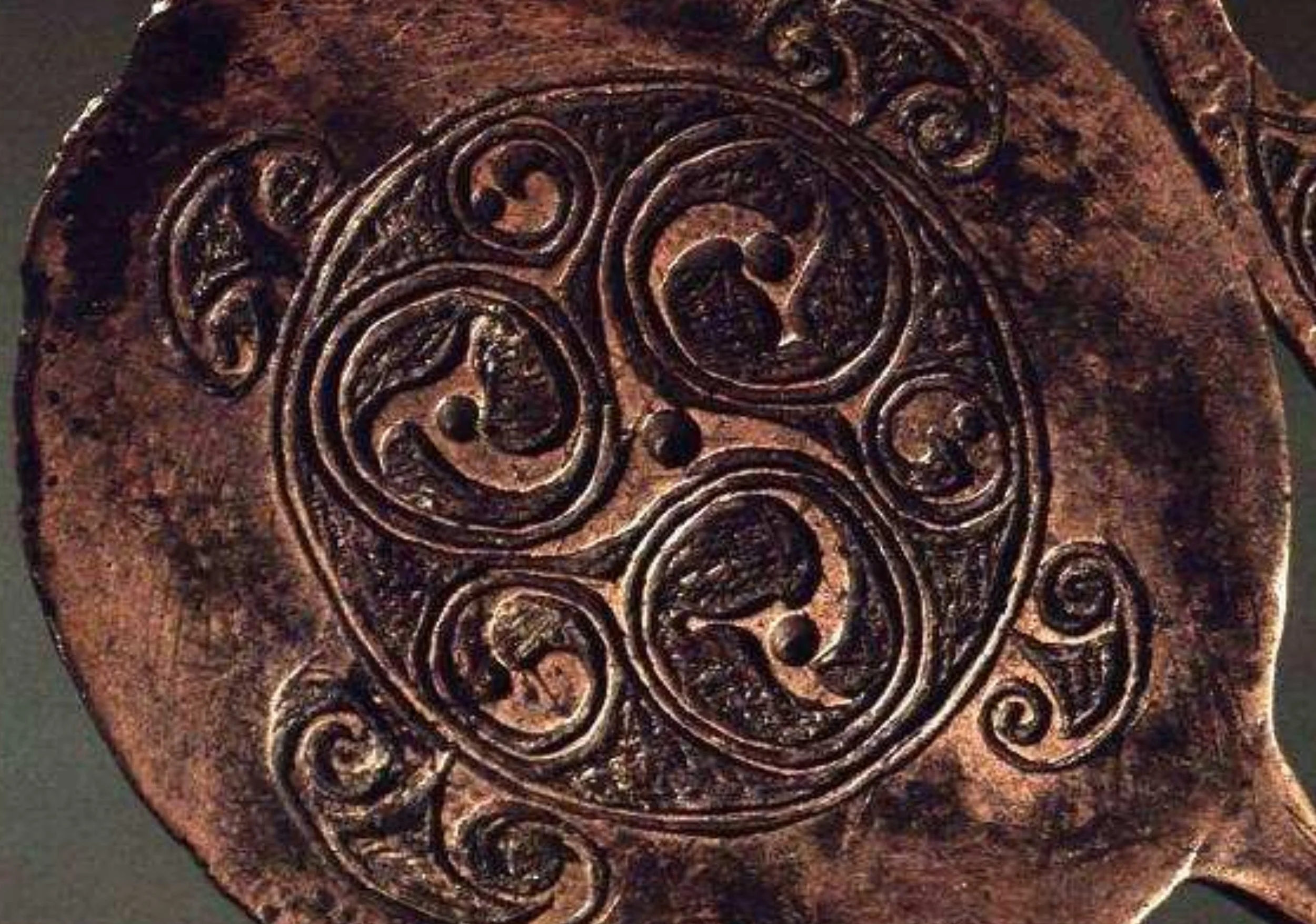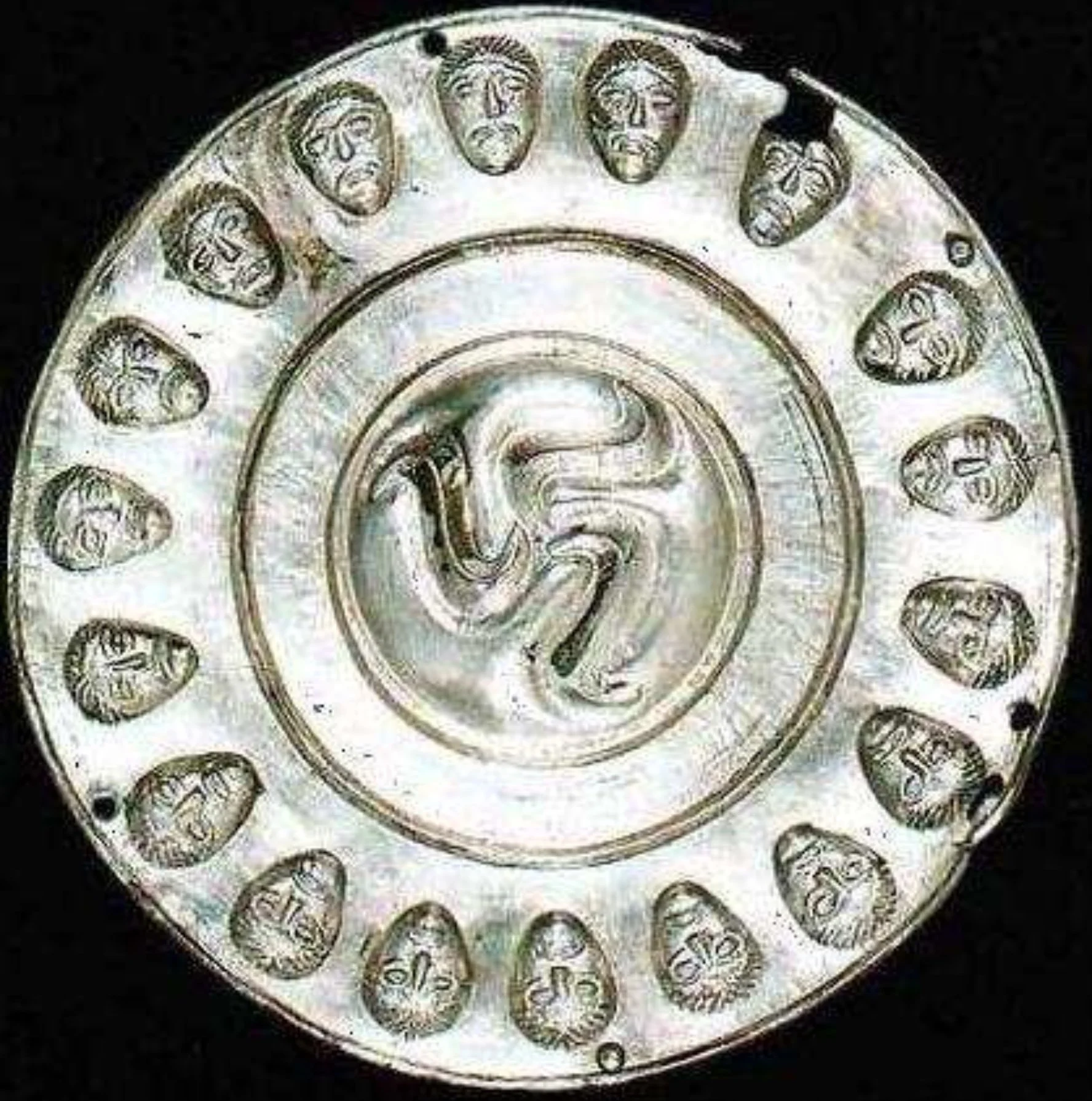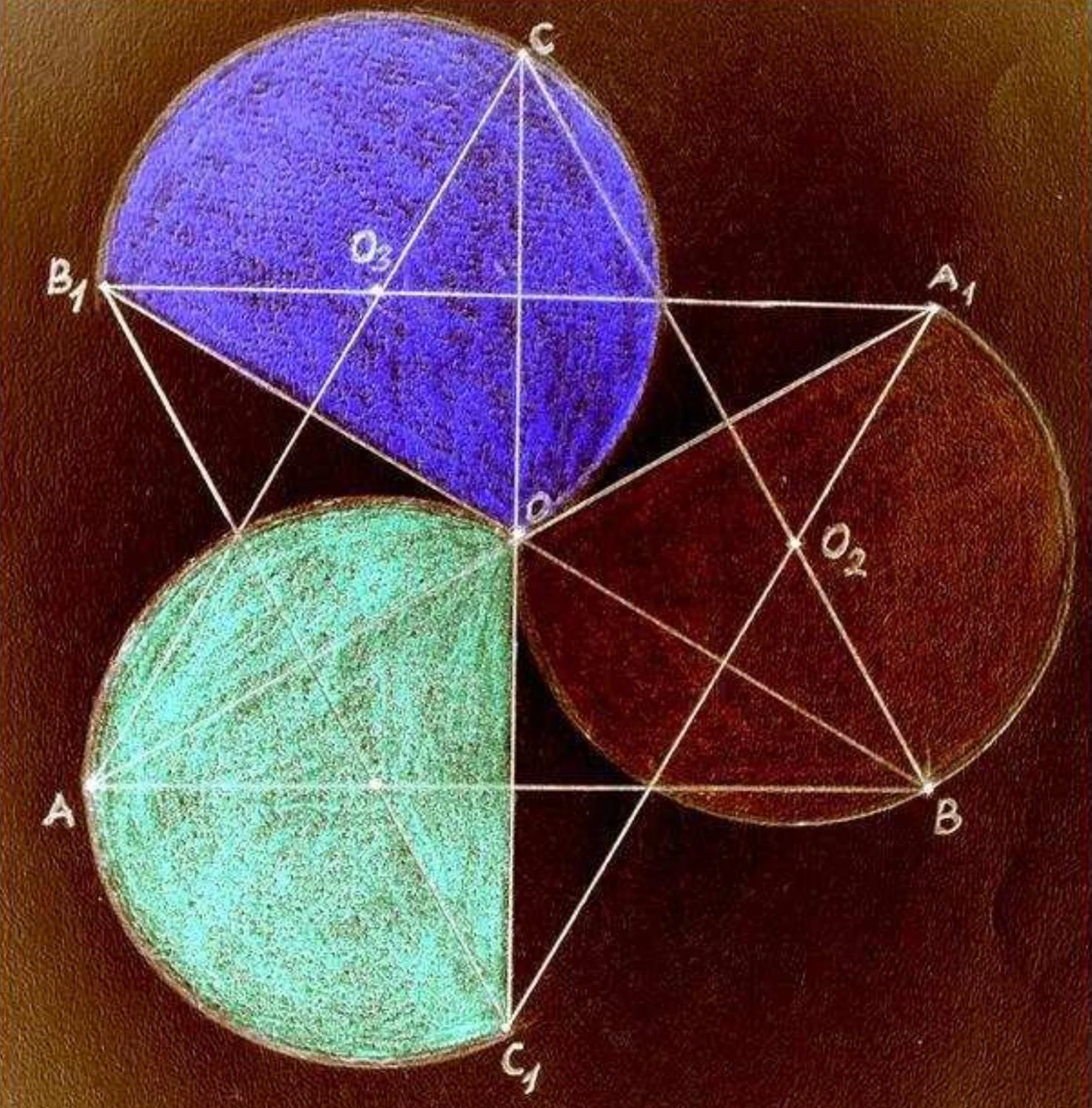An Enduring Symbol
from Prehistory to Modern Advocacy
The triskelion, a motif comprising three interlocked spirals or bent human legs radiating from a central point, stands as one of humanity's most ancient and pervasive symbols. Its presence spans continents and epochs, embodying a rich tapestry of cultural, spiritual, and political significance.
Prehistoric Origins and Symbolism
Early manifestations of a triskelion trace back over 5,000 years. Neolithic site of Newgrange (in modern-day Republic of Ireland, between Dublin and Belfast) features this triple spiral design etched into stones, predating Egyptian pyramids and Stonehenge. Meanings ascribed remain speculative.
Celtic Adoption and Evolution
Artistic representations of triskelions gained prominence in Celtic art during Iron Age (by innate spirituality or political indoctrination; who knows?) La Tène culture, flourishing across Europe, prominently featured the symbol in various artefacts. Ancient Celts might have embraced triskelion symbol to represent themes such as land, sea and sky; or phases of life: youth, maturity and old age.
Rarity of Tripedalism
In natural world, bilateral symmetry prevails, with organisms typically exhibiting paired limbs. Instances of tripedal locomotion are virtually nonexistent among vertebrates, making the triskelion's depiction of three limbs a product of human imagination rather than biological observation. This artistic abstraction conveys forms beyond natural paradigms, perhaps hinting at an early interplay between artistic expression and the conceptual foundations of mathematics.
Triskelion in Sicilian Heritage
Sicily's emblem, known as the Trinacria, features the triskelion with three bent legs and a Gorgon's head at its centre. This symbol dates back to at least 4th century BCE, appearing on Syracusian coins during Greek colonisation.
Triadic Structures in Roman Politics
Roman Republic's political landscape witnessed formation of First and Second Triumvirates, alliances of three powerful individuals who sought to consolidate control over the state. The First Triumvirate (60 BCE) comprised Julius Caesar, Pompey and Crassus; while the Second (43 BCE) included Octavian, Mark Antony and Lepidus. Although not directly linked to the triskelion symbol, these triadic power structures reflect an enduring appeal of tripartite systems in societal organisation.
Contemporary Reflections and Reclamation
In modern times, the triskelion might have been appropriated by some minor groups with extremist ideologies; yet, its historical and cultural roots offer an opportunity for reclamation. Politically neutral organisations advocating for human and animal rights could embrace the triskelion as a symbol of balance, movement and progress. By reflecting possibly ancient connotations of harmony and cyclical renewal, triskelion could serve as an emblem for unity and pursuit of justice.
Conclusion
Triskelion's journey from prehistoric carvings to contemporary symbolism suggests evolutionary heritage and complex ideals in ancient motifs.
Reform Proposal to International Naturist Federation (INF-FNI)
Submitted by: Body Freedom Drafting Circle
Date: 30 March 2025
Executive Summary
This document proposes a fundamental restructuring of INF-FNI, based on critical reflections from reading minutes of 2024 World Congress in Mexico. It highlights key governance flaws, deep structural inequities, and missed ethical responsibilities that undermine INF-FNI's credibility and global leadership in the naturist movement. The proposal recommends that INF-FNI dissolve into at least three distinct INGOs (registered in different jurisdictions) that reflect philosophical, political and practical dimensions of naturism: Naturist Federation, Body Freedom and Naturist Spaces.
1. Shocking Disparity in Member Contributions
Current INF-FNI funding model displays a gross and indefensible disparity in member contributions. Individuals in countries with recognised, well-resourced federations contribute as little as €2 per year, while individuals in countries without a national federation are charged €50 or more annually.
This blatantly abusive model punishes individuals based on their country of residence or federation status, and represents an extreme and perverse economic injustice. Individuals in lower-income or underrepresented nations are effectively excluded or burdened. Such inequality is incompatible with the universalist and emancipatory values that naturism claims to uphold.
2. Central Committee's Gender Imbalance
It is officially acknowledged in the 2024 Congress minutes that the Central Committee is composed entirely of men. This absence of gender diversity is not only outdated but fundamentally incompatible with any claim to represent a global, inclusive movement. No meaningful rationale is provided for this composition, nor any commitment to redress it.
The seeming existence of an all-male leadership in 2025 is both a symptom and cause of stagnation, and calls into question the democratic legitimacy of INF-FNI's internal culture.
3. Federation Representation and Legal Contradictions
2024 Congress reaffirmed its "one federation per country" rule, yet appears to violate it in practice by recognising two federations in Denmark in 2025.
This should not be confused with legitimate concerns raised by Belgium and Netherlands, where national law prohibits compulsory dual payments to multiple entities, i.e. simultaneous payments to a national "federation"(in Belgium or Netherlands) and to a so-called "international federation" under Austrian jurisdiction. The two situations are categorically different:
Denmark's case is a contradiction of INF-FNI’s statutes.
Belgium and Netherlands are raising a legal incompatibility requiring thoughtful reform, not ad hoc accommodation.
4. Rejection of Term Limits for Central Committee
A proposal to introduce a 12-year term limit for Central Committee members was rejected.
This is deeply concerning: it enables entrenched leadership, restricts generational renewal and erodes democratic culture in the organisation. No modern rights-based INGO operates with such permissiveness.
Term limits are essential to prevent institutional decay and ensure long-term accountability.
5. Opaque Influence of Corporate Partners
The Congress approved changes that facilitate the involvement of "Corporate Partners" without sufficient transparency or ethical oversight. There are no clear mechanisms to:
Prevent corporate interests from shaping policy
Ensure alignment with naturist values
Safeguard against commercialisation of identity or access
This raises legitimate concerns about commodification of naturism and lack of structural safeguards against un-nude influence.
6. Absence of Ethical Consideration in Congress Host Selection
Selection of Hungary as host for the 2026 World Congress occurred without any ethical or political discussion regarding its government’s position on human rights, including media freedom, LGBTQIA+ rights, and complicity in Russia’s war against Ukraine.
Failure to consider these implications reflects a disturbing apoliticism within INF-FNI and unwillingness to act in defence of bodily freedom, dignity and equality.
7. Limitations of INF-FNI "Law Council"
Although INF-FNI defines an official "Law Council", its remit is limited to internal dispute resolution. It is neither a public advocacy body nor an instrument for advancing naturist freedoms in legal systems worldwide.
There is an urgent need for legal leadership on:
Decriminalisation of non-sexual nudity
Public space access rights
Protection from body-based discrimination
INF-FNI, as currently structured, does not meet this need.
8. Proposal: Division into Three New INGOs
To address these multiple systemic shortcomings, this proposal recommends INF-FNI be transformed into at least three distinct and purpose-driven international non-governmental organisations (INGOs), e.g:
a) Naturist Federation
A transparent and democratic federation of legal entities (including government departments but excluding natural persons) for exchange and cultural preservation of naturist heritage, described further at https://triskelion.earth/naturist-federation
b) Body Freedom
A rights-based, activist-led movement structured similar to Amnesty International: promoting body autonomy, non-sexual social nudity, and dismantling shame, coercion and discrimination.
c) Naturist Spaces Foundation
A non-profit entity dedicated to acquiring, protecting, and creating physical spaces for body freedom, naturist living, and public access — globally and equitably.
Closing Reflection
Naturism has long stood at a crossroads between lifestyle and liberation. To move forward with credibility, dignity and strength, it must modernise its structures and align with global movements for rights, inclusion and climate-conscious living.
INF-FNI, as currently constituted, is no longer fit for purpose. Let it evolve into a future generation by admitting inevitability of death whilst producing numerous offspring in different domains of influence.

